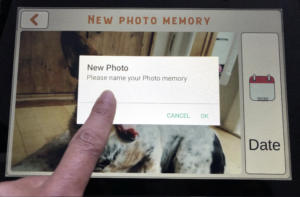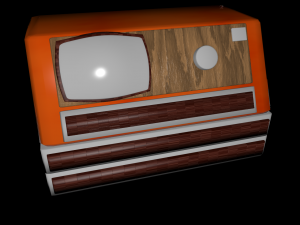
Memory Machine (MeMa) 3.0


MeMa 2.0 follows ‘The Memory Machine’ – a feasibility study funded by Horizon’ Services Campaign.

MeMa aims to contextualise personal memories (pictures, videos, music, 3D content) into timelines to create personalised digital souvenirs, digital repositories for the end-of-life, engaging tools for personal reflection, history education, reminiscence interventions for dementia care, and tools for accessing cultural heritage. MeMa, as a digital platform, provides the tools to allow creation and curation of memories that enable meaningful artefacts to be brought to life with rich emotional value.
MeMa 2.0 will involve work on the product design for MeMa – a design that should preserve user requirements and design specifications identified during the feasibility study. Commencing November 2020 and running for a period of 6 months the project will produce prototype memory machines, facilitate evaluation workshops, document the design process and support follow-on funding opportunities to continue new strands of research highlighted during activity. One area of interest lies in how MeMa might be incorporated into dementia care programmes. With this in mind the Institute of Mental Health – a partnership between Nottingham University Hospitals and the University of Nottingham – will provide support and expert advice on how this project could benefit dementia care.
Researchers at Nottingham University would like to invite you to the fourth Memory Machine workshop, as part of a series of workshops that explore how new technologies can help us preserve memories that are important for us. You’re welcome regardless of whether or not you attended previous Memory Machine workshops.
Sarah Martindale – media researcher – will lead the interactive and creative workshop which will take place on Thursday 22nd of November, 12.00 – 4.00 pm at the Institute of Mental Health, Jubilee Campus.
Participants will receive a £10 high street shopping voucher as a thank you. Travel expenses to the venue will also be covered with lunch and refreshments provided.